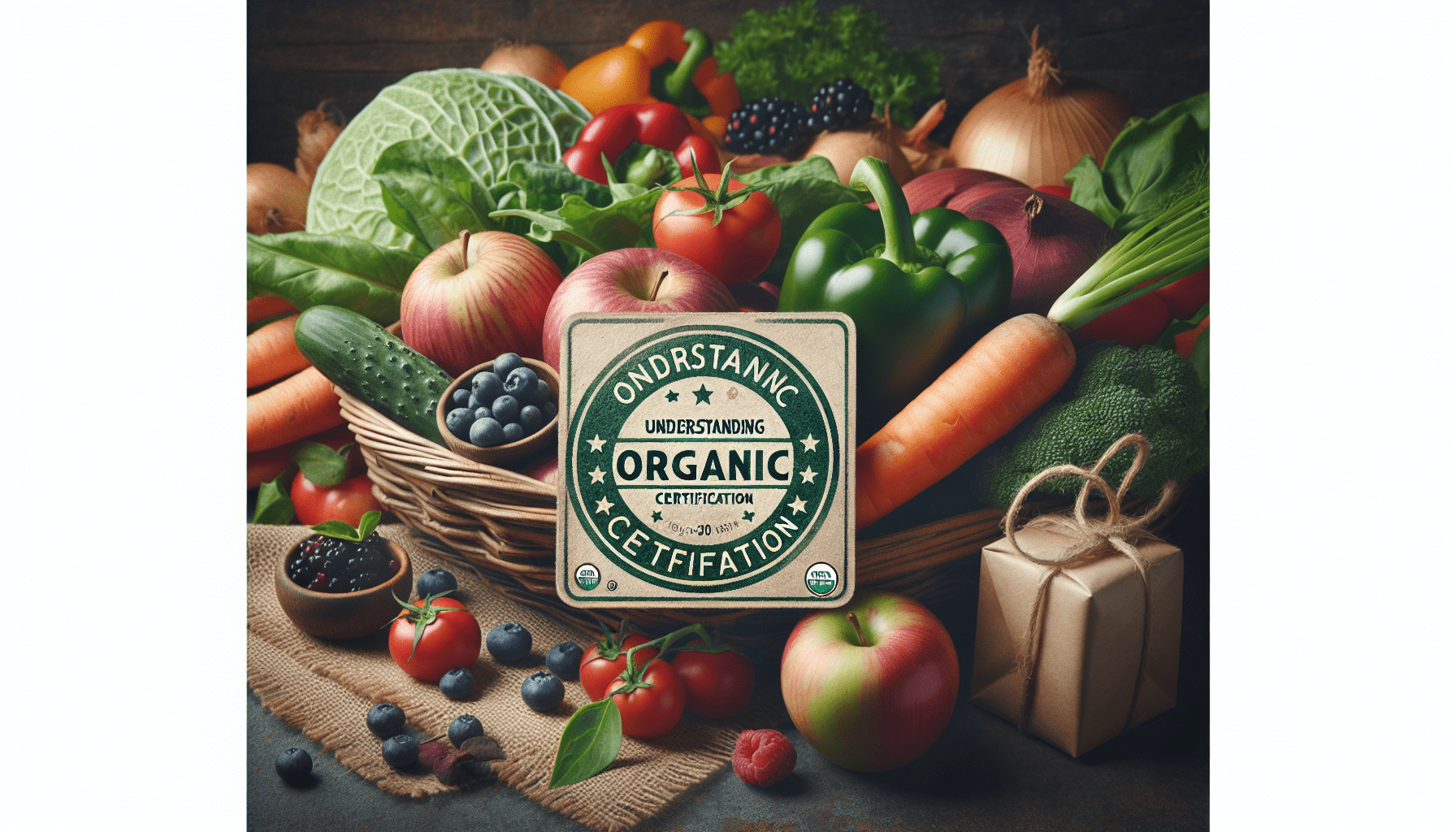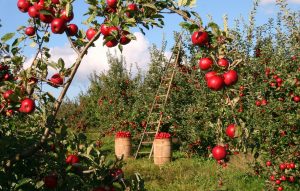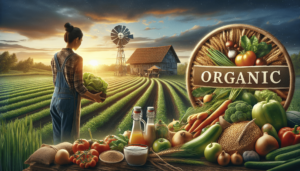Have you ever wondered what truly defines organic food and why it is so significant? Many of us value the benefits of organic produce, but understanding what goes into the certification can sometimes feel like navigating a maze. In this article, we aim to demystify the process and provide you with a clearer picture of what organic food certification entails.
What is Organic Food Certification?
Organic food certification is a certification process for producers of organic food and other organic agricultural products. In general, any business directly involved in food production can be certified, including seed suppliers, farmers, food processors, retailers, and restaurants. This certification ensures that the food products we’ve come to trust as ‘organic’ meet consistent and independent standards.
Why Do We Need Organic Food Certification?
We need organic food certification to assure us that the food we consume is free from synthetic pesticides, fertilizers, and genetically modified organisms (GMOs). It also guarantees that agriculture practices promote ecological balance and conserve biodiversity. This certification provides us with tangible proof that the food meets stringent organic standards.
Basic Requirements for Certification
To achieve organic certification, a variety of requirements must be met. These requirements are typically established by government authorities or reputable organic certification bodies. The practices must align with established organic farming principles, including crop rotation, green manure, compost, and biological pest control.
Crop Production Requirements
Farming practices must focus on preserving the natural resources and biodiversity of the area. A transition period is generally required to allow the land to adjust to organic practices.
| Requirement | Details |
|---|---|
| Avoidance of GMOs | Seeds must not be genetically modified. |
| Use of organic seeds | Organic seeds should be utilized whenever possible. |
| Crop rotations | Must follow clearly defined crop rotation policies to prevent soil depletion. |
| Natural Pest Control | Chemical pesticides and fertilizers are prohibited, focusing instead on natural pest control. |
| Biodiversity Preservation | Practices must support the ecological balance and diversity of the farm. |
Livestock Production Requirements
When it comes to livestock, their health and well-being must be the primary focus, with specific guidelines established for organic livestock rearing.
| Requirement | Details |
|---|---|
| Organic Feed | Animals must consume organic feed, free from antibiotics and growth hormones. |
| Access to Outdoors | Livestock should have access to the outdoors, including fresh air, sunlight, and pasture. |
| No Synthetic Inputs | Use of synthetic veterinary drugs is generally restricted, emphasizing holistic approaches. |
| Animal Welfare | Practices that ensure the humane treatment and well-being of animals are required. |

Key Certification Bodies
Different regions have different certification bodies responsible for implementing and overseeing organic standards. Let’s take a look at some of the most prominent certification bodies worldwide.
USDA Organic
The United States Department of Agriculture (USDA) provides one of the most recognized organic certifications in the world. The USDA Organic seal guarantees that products meet stringent guidelines concerning soil quality, pest and weed control, use of additives, and other criteria.
EU Organic
In Europe, the EU Organic logo certifies that food products meet strict EU regulations regarding organic farming methods. It ensures that organic farming practices are uniform across the European Union.
JAS Certification
Japan Agricultural Standards (JAS) offer certification for organic products within Japan. JAS focuses on maintaining the highest standards for agricultural products, including food, beverages, and other organic goods.
Other Notable Certifications
Other significant certification bodies include:
| Certification Body | Region/Country | Key Features |
|---|---|---|
| Soil Association | United Kingdom | One of the oldest and most comprehensive organic certification schemes in the world. |
| Australian Certified Organic | Australia | Australia’s largest certifier for organic and biodynamic products. |
| Canada Organic | Canada | Ensures compliance with Canadian Organic Standards. |
Certification Process for Farmers and Producers
For a farm or producer to become certified, they must undergo a detailed and stringent process. This process includes several essential steps, from initial application to inspection and final certification.
Application and Documentation
Farmers and producers must fill out an application form and submit necessary documentation detailing their farming practices. This includes information on the use of seeds, fertilizers, pest control methods, and animal husbandry practices.
Inspection and Evaluation
A trained organic inspector visits the farm to verify that the practices described in the application are being followed. The inspector checks all aspects of farming, including soil quality, crop management, livestock care, and water usage. The inspection ensures compliance with the organic standards.
Review and Certification
Post-inspection, the certification body reviews the findings and decides whether to grant certification. If approved, the farmer or producer receives official documentation confirming their organic status. This certification must be renewed annually and requires ongoing compliance with organic standards.
Annual Inspections
To maintain certification status, farms and producers are subject to annual inspections. These inspections are crucial in ensuring continuous adherence to organic farming standards and practices.

Challenges in the Certification Process
The certification process is not without its challenges. From stringent compliance requirements to the financial costs associated with certification, it can be a complex and sometimes arduous process for farmers and producers to navigate.
Financial Costs
One of the significant challenges in obtaining organic certification is the financial cost. These costs can include application fees, inspection costs, and expenses related to meeting the required organic standards.
| Expense Type | Details |
|---|---|
| Application Fees | Initial fees charged by the certification body for processing the application. |
| Inspection Costs | Fees associated with the on-site inspection by a certified inspector. |
| Compliance Costs | Expenses related to altering farming practices to meet organic standards. |
Record-Keeping Requirements
Farmers and producers are required to maintain detailed records of their farming practices and farm management. This can be time-consuming and labor-intensive but is vital for proving compliance with organic standards.
The Benefits of Organic Certification
Despite the challenges, there are numerous benefits to obtaining organic certification both for the producers and for us, the consumers.
For Farmers and Producers
Organic certification can provide access to premium markets and price premiums, often leading to increased profitability. Certification also encourages sustainable farming practices, which contribute to long-term soil health and farm viability.
For Consumers
For us, as consumers, organic certification ensures transparency and trust in the food supply chain. We can have confidence that the products we purchase meet high standards for environmental stewardship, animal welfare, and non-GMO integrity.
Environmental Benefits
Certified organic farming practices promote ecological balance, protect biodiversity, and reduce pollution from synthetic pesticides and fertilizers. Long term, these practices help preserve the natural environment for future generations.

Impact on Sustainable Agriculture
Organic food certification encourages sustainable agriculture practices which aim to protect the environment, reduce pollution, and save resources. These practices have a positive impact not only on the farm but also on the wider community.
Soil Health
By avoiding synthetic pesticides and fertilizers, organic farming methods help maintain healthy soil, which is critical for sustainable agriculture. This approach promotes the natural resilience of the ecosystem, enabling it to support life for generations to come.
Biodiversity
Organic certification mandates practices that support biodiversity on the farm. Crop rotations and the use of organic fertilizers and pest control contribute to a more diverse and resilient agricultural ecosystem.
Water Quality
Reducing the use of synthetic chemicals in farming directly benefits water quality. Organic farming practices help prevent runoff of harmful substances into waterways, protecting aquatic life and drinking water sources.
Misconceptions about Organic Certification
There are several misconceptions regarding organic certification, such as the cost, sustainability, and quality of organic products. By clearing up these misconceptions, we can better appreciate the value and importance of organic certification.
Organic Food is Always More Expensive
While organic products can sometimes be more costly due to the labor-intensive nature of organic farming, many find the price difference to be worth the investment in health and sustainability. Moreover, prices have been leveling out as more farmers adopt organic practices, increasing supply.
Organic Certification is Unreliable
The rigorous standards and annual inspections required for organic certification make it a reliable guarantee of product integrity. The certification process is continually evolving to address new challenges and improvements in agricultural practices.
All Natural Products are Organic
Not all natural products meet organic certification standards. While natural products may not contain synthetic ingredients, the organic certification guarantees adherence to specific and stringent farming practices that protect the ecosystem and our health.

Future Trends in Organic Certification
As the organic food market continues to grow, so too will trends and innovations in the certification process. The adoption of new technologies, changes in consumer behavior, and evolving organic standards will shape the future of organic certification.
Technological Advancements
Technology is increasingly playing a role in organic farming and certification. Innovations such as blockchain for supply chain transparency, satellite monitoring for crop health, and mobile applications for record-keeping are streamlining operations and enhancing the reliability of organic certification.
Evolving Standards
As our understanding of sustainable farming practices grows, organic standards will continue to evolve. These changes will likely place even greater emphasis on regenerative agriculture, climate resilience, and biodiversity preservation.
Conclusion
Understanding organic food certification is crucial for appreciating the value and integrity of the food we consume. The certification process ensures that products meet high standards for farming practices, resulting in benefits for us, the environment, and farming communities. By supporting certified organic products, we contribute to a healthier, more sustainable world. Let’s continue to learn about the certification process, recognize its importance, and make informed choices about our food sources.



